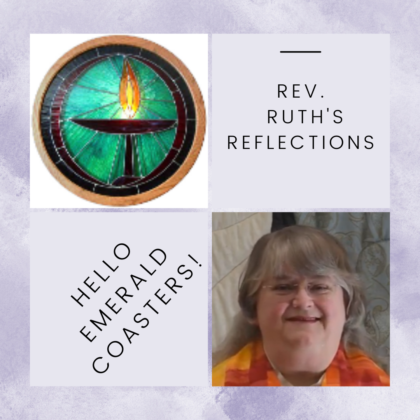“I thought I was wrong once, but I was mistaken.” This is a truth spoken in jest, a revelation about human thought and behavior. It’s hard to admit when we’re wrong.
To be right is to have power, especially in the information age! The internet is replete with bits of information presented by people asserting this power, whether by sharing factual data, personal opinion, or intentional deceit.
We are enduring a presidential campaign based on this struggle for power – the spin, the framing of information. How the citizenry perceive and process the spin will determine if and how they will vote.
We UUs accept factual data, and we encourage the personal search for truth and meaning, asserting that these are not incompatible. We understand that facts stand on their own and can withstand any tests. We also understand that truth cannot be proven but can be examined, discussed, weighed, wrestled with. Sometimes facts and truth seem to contradict each other, and Unitarian Universalism makes room for conflicts and paradoxes.
Here is a fact to consider. Methodism founder John Wesley wrote a wonderful truth which has been paraphrased and incorrectly attributed to a UU historical figure:
“We need not think alike to love alike.”
I know we will keep thinking; UUs do a lot of that.
Can we worry less about being right and try harder to love well?
In wisdom, grace, and hope,
Rev. Ruth

